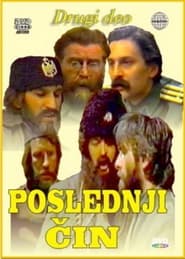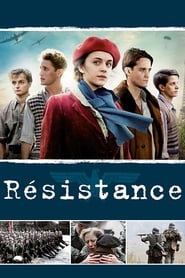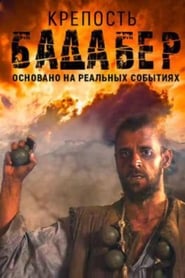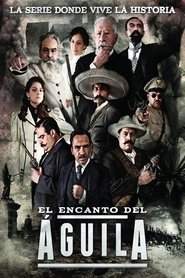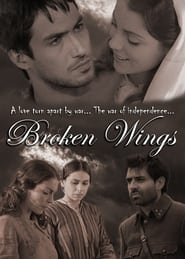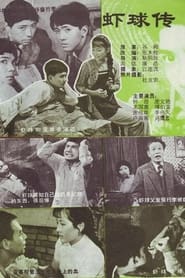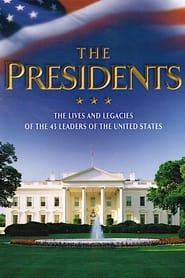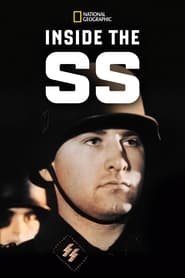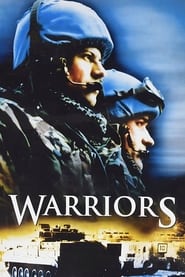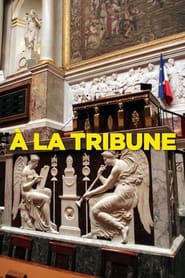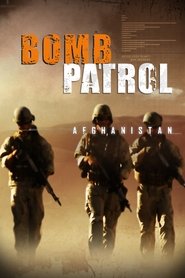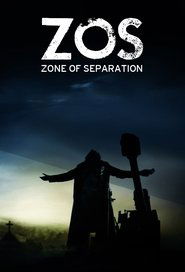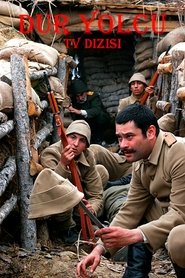Popular War Politics TV Series - Page 75
-
Yugoslav Partisans
2024
Yugoslav Partisans
2024
Who were the Yugoslav Partisans? A docuseries about the founding and evolution of the largest armed resistance in Europe during World War II. -
Zanghat Arreeh
2019
Zanghat Arreeh
2019
The series "Zanghat Arreeh" is a historical social drama, the events of which take place in 1945 in the city of Tripoli in Libya. It highlights the suffering of the Libyan people under the rule of the British administration that was installed in Libya after World War II and the defeat of Italy. In the absence of any media or legal interest, the British military administration facilitated procedures for foreign communities at the expense of the sons of the homeland. The series also highlights the social life, customs and traditions that prevailed among the residents of Tripoli of all religions and ethnicities, united by one city and one homeland, in which they share their joys and sorrows. -
The Last Act
1982
-
The Listening Post
0000
The Listening Post
0000
Listening Post is Al Jazeera English's weekly media review show. It casts a critical eye over not just what gets reported, but how it's reported - covering the coverage of the news & analyzing global events through the prism of the media. -
Resistance
2014
Resistance
2014
star 8In occupied France, 17-year-old Lili encounters war before love, and joins the Resistance. Through the interconnecting destinies of its teenage heroes, Resistance tells the story of young people going to any lengths to defend their country. -
Die Puppenspieler
2017
Die Puppenspieler
2017
star 5.4Helpless, the young convent student Richard has to watch as his mother Sarazenin Zobeida is condemned by the inquisitor Heinrich Institoris as a witch and burned at the stake. From then on, Richard swears revenge on Institoris for what he did to his family. He can escape and is taken by the merchant Jakob Fugger. He wants to teach him not only to seek blind revenge, but to manipulate people like puppets and thus to reach his goals. The two travel from Florence to Rome to influence the upcoming election of the pope and to witness the power struggle between the Medicis and the Borgias up close. -
Westwall
2021
Westwall
2021
star 5.8When Julia, a young trainee police officer, meets the secretive stranger Nick, she finds herself falling for him almost instantly. But after their first night together, she is shocked to see that Nick has a huge swastika tattoo on his back. Despite all the advice to forget the guy immediately, she decides to investigate the right-wing extremist scene for herself. She follows a trail deep into the forests of the Eifel to the abandoned bunkers of Hitler’s Siegfried Line. In this old World War II defense facility, the young police officer finds the hideout of a terrorist with whom she has more in common than she ever could have imagined. -
El Encanto del Águila
2011
star 7.7A detailed dramatization of historical events during the time of the Revolution in Mexico. Using never-before-known historical documents, details about what happened during the period from 1910 to 1928 are revealed. -
Kırık Kanatlar
2006
-
虾球传
1982
虾球传
1982
-
The Presidents
2005
The Presidents
2005
star 6.3The show documents each of the Presidents in the union, starting with George Washington, following a chronological order up until George W. Bush. Each President's segment begins with the narrator giving a brief dossier about each one, from their political affiliation, family, and notable traits. The show then highlights the history behind each presidency, linking each one to the following. -
Inside the SS
2017
Inside the SS
2017
star 6.8With the aid of rare archives, this film retraces the bloody history of the SS, some of whose members are still alive and have accepted to speak. -
Warriors
1999
Warriors
1999
star 9The series tells the story of a group of British peacekeepers serving in a peacekeeping operation of the UNPROFOR in Vitez, in Bosnia during the Lašva Valley ethnic cleansing in 1993. -
Laisvės kaina. Partizanai
2017
The series tells about the three occupations and mass exterminations that took place in the middle of the last century, the Holocaust, the terror, the attempt to physically and spiritually crush Lithuania. -
À la tribune
2020
-
Bomb Patrol: Afghanistan
2011
star 7.7From the streets of Afghanistan comes an all-new series profiling the U.S. military's most dangerous job. The first of its kind, Bomb Patrol Afghanistan is a groundbreaking docu-series giving viewers an unprecedented first person view of one of the most dangerous jobs in the world in one of the most dangerous places on earth. G4 embeds viewers within the U.S. Navy E.O.D. (Explosive Ordnance Disposal) Unit as it trains state-side prior to deployment. Outside the wire in war-torn Afghanistan, helmet and body mounted cameras and state-of-the-art robotics bring you a never before seen look at the intensity of war. Viewers will witness as the elite team searches out, disarms and destroys an array of deadly explosives with one goal: to save civilian and military lives and return home safely. This is war like you've never seen before. -
ZOS: Zone of Separation
2009
star 9ZOS: Zone of Separation is a Canadian television drama mini-series, co-executive produced by Paul Gross. It is an eight-part Canadian original drama mini-series about the life and death struggle to enforce a U.N.-brokered ceasefire in the fictional, Sarajevo-like town of Jadac. -
Dur Yolcu
2008
Dur Yolcu
2008
 Netflix
Netflix
 Amazon Prime Video
Amazon Prime Video
 Apple iTunes
Apple iTunes
 Apple TV Plus
Apple TV Plus
 Disney Plus
Disney Plus
 Google Play Movies
Google Play Movies
 Paramount Plus
Paramount Plus
 Hulu
Hulu
 HBO Max
HBO Max
 YouTube
YouTube
 fuboTV
fuboTV
 Peacock
Peacock
 Peacock Premium
Peacock Premium
 Amazon Video
Amazon Video
 The Roku Channel
The Roku Channel
 AMC+
AMC+
 Kocowa
Kocowa
 Hoopla
Hoopla
 The CW
The CW
 Vudu
Vudu
 Starz
Starz
 Showtime
Showtime
 PBS
PBS
 Pantaflix
Pantaflix
 FXNow
FXNow
 Tubi TV
Tubi TV
 Kanopy
Kanopy
 Comedy Central
Comedy Central
 Crunchyroll
Crunchyroll
 Microsoft Store
Microsoft Store
 Redbox
Redbox
 Sun Nxt
Sun Nxt
 ABC
ABC
 DIRECTV
DIRECTV
 Crackle
Crackle
 Fandor
Fandor
 Plex
Plex


